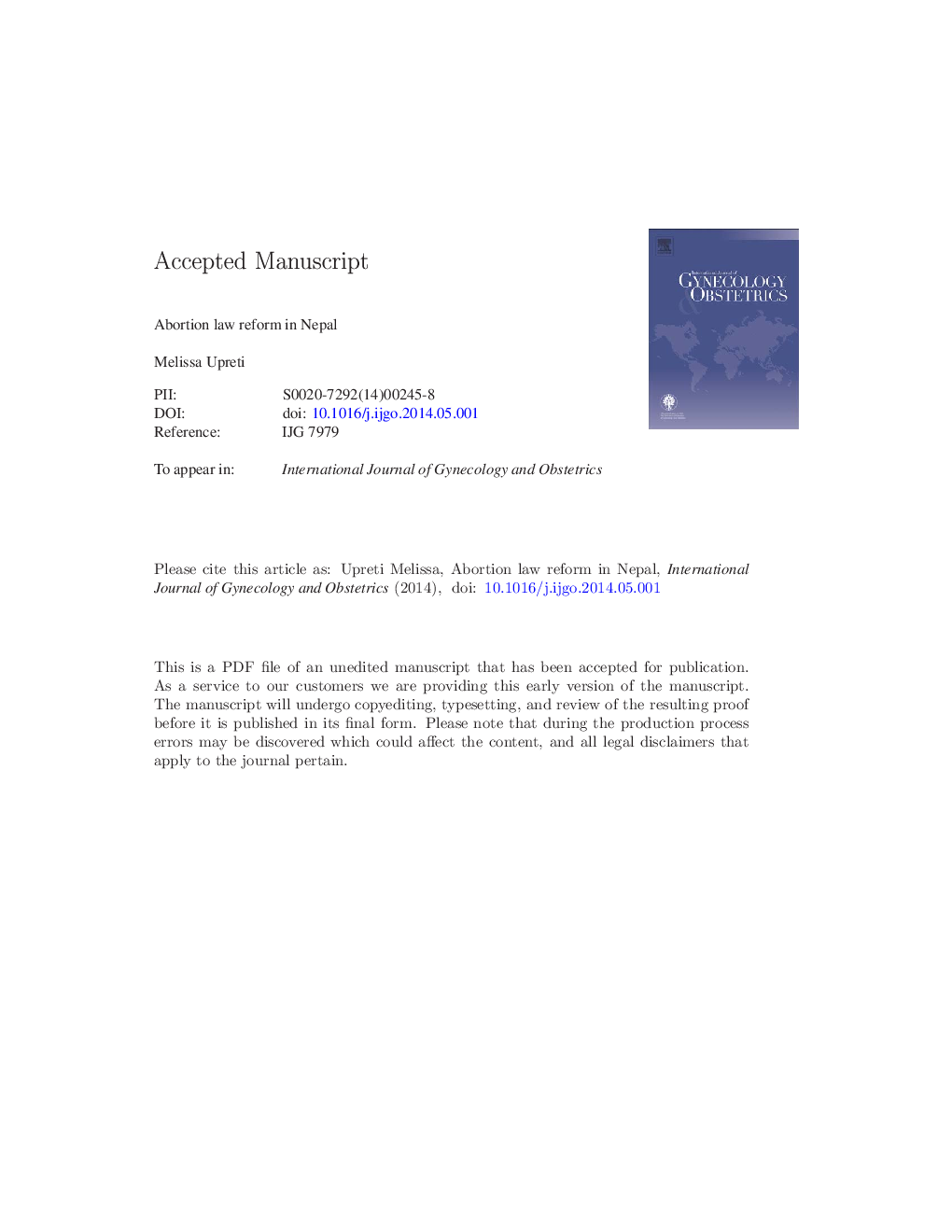| Article ID | Journal | Published Year | Pages | File Type |
|---|---|---|---|---|
| 6187676 | International Journal of Gynecology & Obstetrics | 2014 | 22 Pages |
Abstract
Across four decades of political and social action, Nepal changed from a country strongly enforcing oppressive abortion restrictions, causing many poor women's long imprisonment and high rates of abortion-related maternal mortality, into a modern democracy with a liberal abortion law. The medical and public health communities supported women's rights activists in invoking legal principles of equality and non-discrimination as a basis for change. Legislative reform of the criminal ban in 2002 and the adoption of an Interim Constitution recognizing women's reproductive rights as fundamental rights in 2007 inspired the Supreme Court in 2009 to rule that denial of women's access to abortion services because of poverty violated their constitutional rights. The government must now provide services under criteria for access without charge, and services must be decentralized to promote equitable access. A strong legal foundation now exists for progress in social justice to broaden abortion access and reduce abortion stigma.
Related Topics
Health Sciences
Medicine and Dentistry
Obstetrics, Gynecology and Women's Health
Authors
Melissa Upreti,
